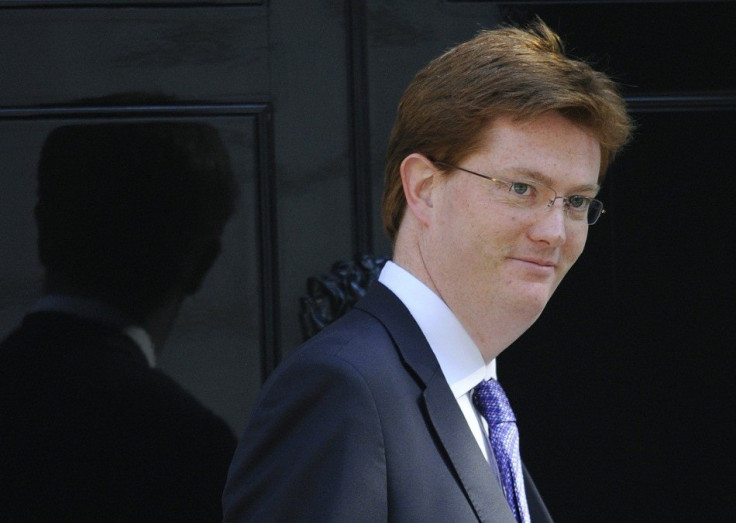Danny Alexander Hints at Keynesian Fiscal Stimulus for UK Economy

Is the British government preparing for its biggest u-turn yet, with a conversion to the Church of Keynes?
Only one week ago, when the ratings agency Standard & Poor's reaffirmed the UK finances' AAA status, Chancellor George Osborne said it proved that the "world has confidence" in the government's handling of the economy, as it slashes public spending in an austerity programme designed to eliminate the deficit left by the previous Labour government.
Yet after two years of justifying austerity through the prism of the UK's AAA credit rating, with the near deification of ratings agencies, Chief Secretary to the Treasury Danny Alexander has blasphemed.
"The credit rating is not the be-all and end-all," Alexander told the BBC.
"What matters is have we got the right policy mix for the country to get people back into work, to support economic growth, to deal with the huge problems in our public finances and the credit agencies reflect on those things and the ratings they give are a reflection of the credibility of that mix."
Ever since the coalition came to power in May 2010 the government has stressed the importance of maintaining its AAA rating, a supposed indicator of fiscal credibility, to hold its borrowing costs down when it sells gilts.
Tackling the budget deficit and bringing down government debt, mostly through politically unpopular public austerity measures, means UK investors know their money is safe, argues Osborne, unlike with the sovereign debt across parts of the crisis-mired eurozone, such as Italy and Spain, and means the government can sell its debt at a cheaper rate.
Alexander appears to be paving the way for a much-needed fiscal boost to bring Britain's dead economy back to life, and preparing us for the inevitable downgrade that would follow the effective admission that the government's austerity and economic policies have failed.
Osborne and the Treasury have bleated, almost with glee, that there can be no increase in government spending as it would be irresponsible to borrow more money to do so while trying to reduce the deficit.
Critics, who adopt a Keynesian stance, say that the deficit can be brought down by the subsequent boost to Treasury coffers from growing the economy via fiscal stimulus, and the increased output and tax revenues it brings.
While the government has been actively shrinking the economy through austerity, and in turn reducing the size of the private sector given how heavily parts of it relied on a thriving public sector, Treasury revenues have fallen which has meant the UK has had to borrow more to maintain its spending.
This has sent the UK's debt-to-GDP rate soaring to its highest level since 1970, at 66.1 percent.
Countless economic forecasts for the UK economy have been slashed in recent months, most notably by the International Monetary Fund (IMF) and the Bank of England, since output started contracting in the last quarter of 2011.
In the second quarter of 2012 the UK economy plunged to a -0.7 percent fall in output.
Recent data from the private sector at the start of the third quarter showed growth slowing to a 19-month low in the vital service sector, the UK's largest representing around three quarters of overall GDP.
Manufacturing output, which has been falling for several months, freefell in July to a 38-month low.
With all the negative economic data the government's position on austerity has already weakened and it looks as though it is prepared to sacrifice its own economic policy at the altar of Keynes, letting political blood in the despairing hope for economic growth.
Alexander's sudden heretical dismissal of the once sacrosanct AAA rating is the second signal from the government that it is prepared to invoke Keynesian theory and undermine its own fundamental economic policy of State-shrinking spending cuts.
Osborne announced in July a £9.3bn public investment in railway infrastructure, to improve lines and stations across the country.
Not only will this create jobs, said Osborne, but the improved links between the country's regions and London will help foster private investment and growth in places that need it most, particularly the north of England.
The chancellor also pledged taxpayer cash to underwrite major infrastructure projects that are unable to find financing from private lenders who, in the current uncertainty of the economic climate, are unwilling to take on extra risk.
Should the UK's economic picture weaken further still then the government will feel compelled to increase its fiscal boost to something more substantial.
The government will also be mindful that the electorate votes with its wallet.
Ministers may seriously undermine their past arguments by increasing fiscal stimulus, but if it means healthier economic data come election time then they would certainly be in for a better result than the economy at present would allow.
Over the next few weeks, if the economic data does not improve and the third quarter looks set to be a disappointment, expect more fiscal schemes - but expect them to go by any other name.
© Copyright IBTimes 2024. All rights reserved.







